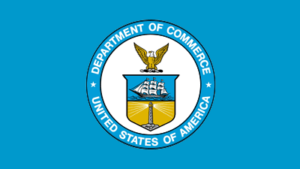
Smaller Infractions are Sometimes Best to Settle Rather than go to Trial Suggests Chicago Employment Lawyer
Jul 11, 2012
Chicago, IL (Law Firm Newswire) July 10, 2012 – It is often the wiser move to settle a case than to fight it out in court. It depends on what may be at stake.
“Not all employment disputes go to court, nor should they. If the amount of money involved in a case is relatively small, it often makes more sense to settle out of court. If the defendant does not wish to go that route, they may be exposed to unnecessary expenses,” said Timothy Coffey, a Chicago employment lawyer and principal attorney for The Coffey Law Office, P. C., an employment litigation firm dedicated to representing employees in the workplace.
Litigating a case in court is necessary if there are major infractions and the likelihood exists of a substantial monetary award. It may also be necessary if there is a significant issue the courts need to examine and make a determination on how something is to be interpreted. If a case may be settled out of court, it saves time, money and anxiety for the plaintiff and defendant. “It saves the defendant money, because if they did go to court, they may end up paying more than they would have if they had agreed to a settlement offer,” added Coffey.
Johnson v. GDF, Inc., No. 11-1934, 7th Cir., 2012 is a good example of this type of a situation. The plaintiff was ostensibly let go from where he worked, because he was complaining about wage/hour violations. This case did go to court, and during pretrial, it was clear the plaintiff was owed a few thousand dollars. There were two circumstances that limited the amount he was owed: he got another job, which meant he was not entitled to back pay, and he had lied about having a criminal record, which cut off any future liability on the part of the company.
The company insisted on going to trial with this case, despite the plaintiff’s lawyer wanting to settle the issue. The defendant lost and was awarded $10,000. “His back pay was $1,000, but the court was not impressed with the defendant bringing the case to trial, and handed out $4,000 in punitive damages, and then doubled the amount for good measure,” said Coffey.
They appealed, and lost, which put the plaintiff’s lawyer in the position of being entitled to fees for his work on the case to appeal to conclusion. His bill was over $100,000. The court pointed out that because the company had vehemently insisted there be a trial and wanted to go to appeal, it was the author of its own misfortune. Once they realized their liability was limited to $1,000, they should have settled and let it go. The court then remanded the case to determine what the lawyer’s fees would be.
“Whatever the case happens to be,” stated Chicago employment attorney Coffey, ”An attorney should be willing to take it to court, to ensure their client gets a fair trial. If, like this case, there is an opportunity to settle, a client will be advised of their options. Whether or not a case goes to trial is often up to the defendant. It’s important to work with an experienced employment attorney that can help you decide when a settlement is the best outcome.” he added.
Timothy Coffey is a Chicago employment lawyer and principal attorney for The Coffey Law Office, P. C., an employment litigation firm dedicated to representing employees in the workplace. To learn more or to contact a Chicago employment attorney, visit employmentlawcounsel.com.
THE COFFEY LAW OFFICE, P.C.
351 W. Hubbard Street, Suite 602
Chicago, IL 60654
Call: 312.627.9700




